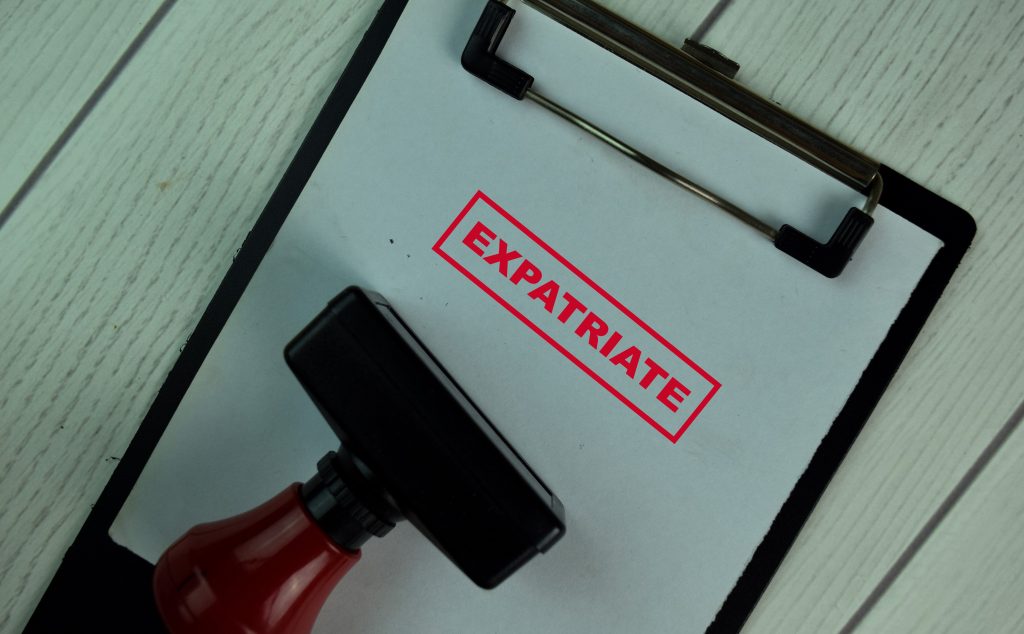
Repatriation is a tax regime that was created for the benefit of French citizens who are tax residents abroad, also known as "expats," who wish to return to France permanently.
This status aims to encourage French citizens to return to live in France after their expatriation.
Thus, an expatriate person may not pay French tax upon returning to France by benefiting from an exemption on certain sources of French and foreign income.
In this article, we will go over this repatriation regime point by point.
- The nature of exempt income
- the expatriation bonus, i.e. the additional remuneration directly linked to the exercise of a professional activity in France;
- the part of the remuneration relating to the activity carried out abroad and carried out in the interest of the employer within the framework of intra-group mobility;
- 50% income from movable capital from foreign sources[1] ;
- 50% income from intellectual or industrial property of foreign source[2] ;
- 50 % of gains from the sale of securities and social rights from foreign sources;
- compensation and reimbursement of professional expenses[3] ; And
- housing allowance, tax equalization[4]and other compensation relating to expatriate employees. [5]
This status also allows a portion of the contributions paid to the supplementary pension and insurance schemes to which the expatriate was affiliated before arriving in France to be deducted from taxable income.
- Conditions for benefiting from tax exemption
In order to obtain these exemptions, the expatriate must meet several criteria concerning his employment:
– He must be a natural person, employee or manager; and
– He must have been transferred as part of a intra-group mobility by a company whose head office is abroad for a position in a company in France with a link to the foreign company; or
– have been recruited directly from abroad as part of a external hiring by a company in France[6].
In addition, he must satisfy two cumulative conditions regarding residence, namely:
– a condition of non-tax resident for 5 years before returning to France; and
– a condition of tax domicile in France[7]i.e. have their home or main place of residence in France and carry out a professional activity there as their main activity at the time of their return to France.
- The practical implementation of the impatriation regime and its duration
The regime will only apply for the years during which the expatriate:
– has his home or place of principal residence in France; and
– exercises a professional activity as a principal.[8]
It is accepted that the system applies for the year in which the position is taken up in France if the household is established in France at the latest before the end of the calendar year following that in which the position is taken up.
Finally, the duration of application of the regime is 8 years and is set at the maximum until December 31 of the eighth calendar year following the taking up of duties in the host company for any taking up of duties from July 6, 2016.

- Focus on the impatriation bonus
For the repatriation bonus to be tax-exempt, the employee/manager must be taxed in France on an amount at least equivalent to the remuneration received in the same company by a non-repatriated employee for a similar position.
In addition, the expatriation bonus must appear clearly in the employment contract or in the social mandate or, where applicable, in an amendment, drawn up prior to taking up duties in France.
Regarding the amount of the bonus, in order for it to be exempt, this amount must be determined or determinable by objective elements stipulated in the employment contract.
The amount exempt from the capped expatriation bonus
Regarding external hiring, and in the event of a bonus amount not established in the employment contract, the expatriation bonus may be assessed as a flat rate, being deemed equal to a maximum of 30% of the total remuneration.
Concerning expatriates in the context of intra-group mobility and if the amount of the bonus is not determined, it will be necessary for the latter to be determinable on the basis of objective and precise criteria mentioned in the employment contract.
On the other hand, if the position was taken up as part of intra-group mobility after November 15, 2018, the assessment of the exempt amount can be done using the flat-rate assessment, as with external hiring.
A cumulative exemption from the expatriation bonus is possible but also capped
The capping of the exemption from the expatriation bonus can be combined with an exemption from remuneration relating to an activity carried out abroad, but this accumulation is capped at the taxpayer's choice:
- Either an overall cap, in which case the exemption from the expatriation bonus and the portion of remuneration corresponding to the activity carried out abroad cannot exceed 50 % of the total remuneration;
- Either a cap on the sole exemption of the remuneration corresponding to the activity carried out abroad, in which case the exemption of this part cannot exceed 20 % of the taxable remuneration of the person concerned net of the expatriation bonus.
[1]Provided that the payment of this income is provided by a person established outside France in a State or territory having concluded a tax treaty with France which contains an administrative assistance clause with a view to combating fraud or tax evasion
[2]on the same condition as set out in 1
[3]Article 81 paragraph 1 of the General Tax Code
[4]This is the reimbursement in full or in part of the cost of the accommodation constituting the residence of the
employee repatriated to France and the tax and compulsory social security contributions paid in
France.
[5]Article 155B of the General Tax Code
[6]the benefit of the scheme is not subject to the condition that the employment contract or its amendment mentions the duration of employment in France, nor that the employment contract is concluded for a fixed period.
[7] Within the meaning of Articles 4 a) and b) of the General Tax Code.
[8]Failure to comply with one of these cumulative conditions for a year does not exclude the benefit of the scheme for the years – prior or subsequent – for which they are met.
